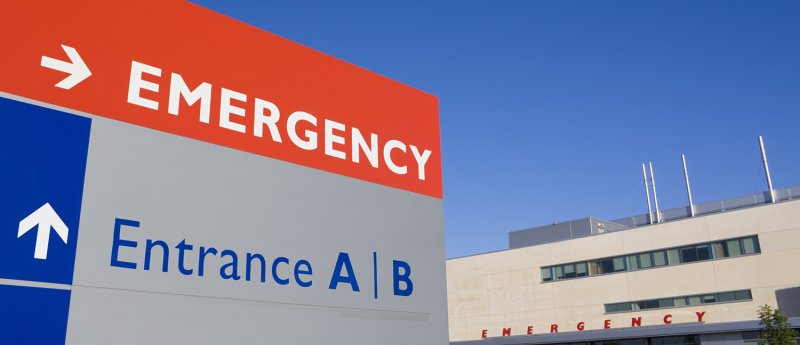 Health Care Systems and Services
Health Care Systems and Services
-
Turning research into actionEvery Black Voice: Unveiling Asheville's Path to Racial Equity
A deeper, more complex story lies in the picturesque city of Asheville, North Carolina, known for its vibrant arts scene and historic architecture. It's the story of the Black community - a narrative woven with challenges, resilience, and hope. The "Every Black Voice" report, a comprehensive study conducted by the Racial Justice Coalition, reveals Black residents' lived experiences, struggles, and aspirations in Asheville, particularly in light of the city's reparations journey.
February 19, 2024
|P4A Spark
| -
Turning research into actionThe Moral Imperative to Ensure Access to Healthcare in a Changing Reproductive Health Climate
Access to contraception, receipt of quality medical care, and the ability of individuals to make their own reproductive decisions are critical elements of basic healthcare and health equity for all. The recent overturning of Roe v. Wade and related trigger laws have severely limited access to safe abortions in parts of the United States, especially for women with low incomes and women of color.
August 10, 2022
|P4A Spark
| -
Health Care Systems and ServicesDispersion of Contraceptive Access Policies across the United States from 2006 to 2021
Person-centered contraceptive access promotes reproductive autonomy, sexual wellbeing, menstrual regulation, and other preventive health measures. However, contraceptive access varies by social and geographic position, reflecting patterns in the US contraceptive access policy climate. State-level contraceptive access policies can enable access to family planning care, particularly for systemically marginalized and less socioeconomically advantaged groups, or conversely, may disproportionately disadvantage such communities.
June 1, 2022
|Evidence
| -
Health Care Systems and ServicesWhether through Medicaid or private insurance, having coverage is consistently tied to improved medical care access
For decades, Medicaid has provided virtually no-cost coverage to millions of Americans priced out of the private insurance market. Still, state legislators, policy analysts, and the popular press continue to question Medicaid’s value, particularly in relation to private coverage. Twelve states have not expanded Medicaid coverage under the Affordable Care Act (ACA) framework despite the offer of federal funding to cover 90 percent of the costs associated with the additional enrollees.
March 28, 2022
|P4A Spark
| -
Children and FamiliesPost-ACA, More Than One-third Of Women with Prenatal Medicaid Remained Uninsured Before or After Pregnancy
Since the early 1990s, Medicaid has been critical in providing insurance coverage for pregnant women with low incomes in the United States - pregnancy-related Medicaid coverage is available to women with incomes up to 200 percent of the federal poverty level in most states. Building on existing studies tracking changes in Medicaid coverage and uninsurance under the law, researchers Emily M. Johnston, Stacey McMorrow, Clara Alvarez Caraveo and Lisa Dubay examined data for new mothers with Medicaid-covered prenatal care in this study published in Health Affairs.
April 5, 2021
|Evidence
| -
Health Care Systems and ServicesComparison of Utilization, Costs, and Quality of Medicaid vs Subsidized Private Health Insurance for Low-Income Adults
In an article recently published in JAMA Network Open, Heidi Allen, Sarah H. Gordon, Dennis Lee, Aditi Bhanja and Benjamin D. Sommers use data from Colorado to compare individuals with similar incomes across coverage types, highlighting the key differences between Medicaid and Marketplace insurance.
January 5, 2021
|Evidence
| -
 Turning research into actionMaintaining COVID-era Telehealth Practices Can Better Meet Student Mental Health Needs
Turning research into actionMaintaining COVID-era Telehealth Practices Can Better Meet Student Mental Health NeedsResearch suggests that one in seven children in the United States have a diagnosable mental health condition. But despite efforts to increase access to care through school-based mental health services, most youth with a mental health condition do not receive the treatment they need. Telehealth services, however, have the potential to increase access to school-based mental health treatment by reducing districts’ need for on-site personnel—of which there is a national shortage—without compromising the quality of care. Therefore, states should consider maintaining the telehealth flexibilities they enacted in response to the COVID-19 pandemic as a means to improve access to critical school-based mental health services for youth, even after the public health emergency ends.
November 30, 2020
|P4A Spark
| -
Children and FamiliesMedicaid Expansion Increased Preconception Health Counseling, Folic Acid Intake, and Postpartum Contraception
The period before pregnancy is critically important for the health of a woman and her infant, yet not all women have access to health insurance during this time. Rebecca Myerson of the University of Wisconsin-Madison, Samuel Crawford of the University of Southern California, and Laura R. Wherry of New York University evaluated whether increased access to health insurance under the Affordable Care Act (ACA) Medicaid expansions affected ten preconception health indicators, including the prevalence of chronic conditions and health behaviors, birth control use and pregnancy intention, and the receipt of preconception health services.
November 1, 2020
|Evidence
| -
Employment and WorkplaceConsequences of Work Requirements in Arkansas: Two-Year Impacts on Coverage, Employment, and Affordability of Care
Arkansas implemented Medicaid work requirements in June of 2018. To maintain coverage in the state, adults ages 30-49 were required to work 20 hours a week, participate in “community engagement” activities, or qualify for an exemption. By April 2019, when a federal judge halted the policy, more than 18,000 adults had lost coverage. As an update to research published in 2018, Benjamin D. Sommers, Lucy Chen, Robert J. Blendon, E. John Orav, and Arnold M. Epstein analyzed the policy effects before, during, and after implementation in this Health Affairs brief.
September 8, 2020
|Evidence
| -
Health Care Systems and ServicesAssessment of Perceptions of the Public Charge Rule Among Low-Income Adults in Texas
A recent expansion of the federal “public charge” rule allows the government to deny immigrants permanent residency based on their income or health status or if they participate in programs that did not previously trigger the rule, such as Medicaid or the Supplemental Nutritional Assistance Program [SNAP]. Critics contend that this will dissuade individuals from participating in programs or obtaining medical care. In this JAMA Network Open paper, Benjamin D. Sommers, Heidi Allen, Aditi Bhanja, Robert J. Blendon, John Orav, and Arnold M. Epstein examine perceptions of the new public charge rule and its potential impacts on public program participation and medical care among low-income adults in Texas.
July 15, 2020
|Evidence
| -
 Health Care Systems and ServicesThree Questions about Medicaid As the ACA Turns 10
Health Care Systems and ServicesThree Questions about Medicaid As the ACA Turns 10The Affordable Care Act (ACA), which turns 10 on March 23, dramatically changed Medicaid, making it available to millions of previously ineligible low-income adults. As some states continue to debate whether to expand Medicaid and policymakers propose more far-reaching changes to the program, it is critical to provide timely evidence on how the program is working and what the potential effect of major changes would be.
March 12, 2020
|P4A Spark
| -
 Health Care Systems and ServicesDo interventions to decrease emergency care use among ‘super-utilizers’ work?
Health Care Systems and ServicesDo interventions to decrease emergency care use among ‘super-utilizers’ work?A new University of Michigan analysis reviews 46 studies evaluating interventions for "super-utilizers" of emergency department and prehospital care in the U.S. Here, the authors share their thoughts on the importance of their findings.
June 19, 2019
|P4A Spark
|